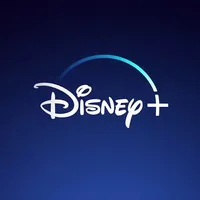How to watch the X-Men movies in order: chronological and release date
Want to know how to stream the X-Men movies in order? TechRadar has got all of your bases covered
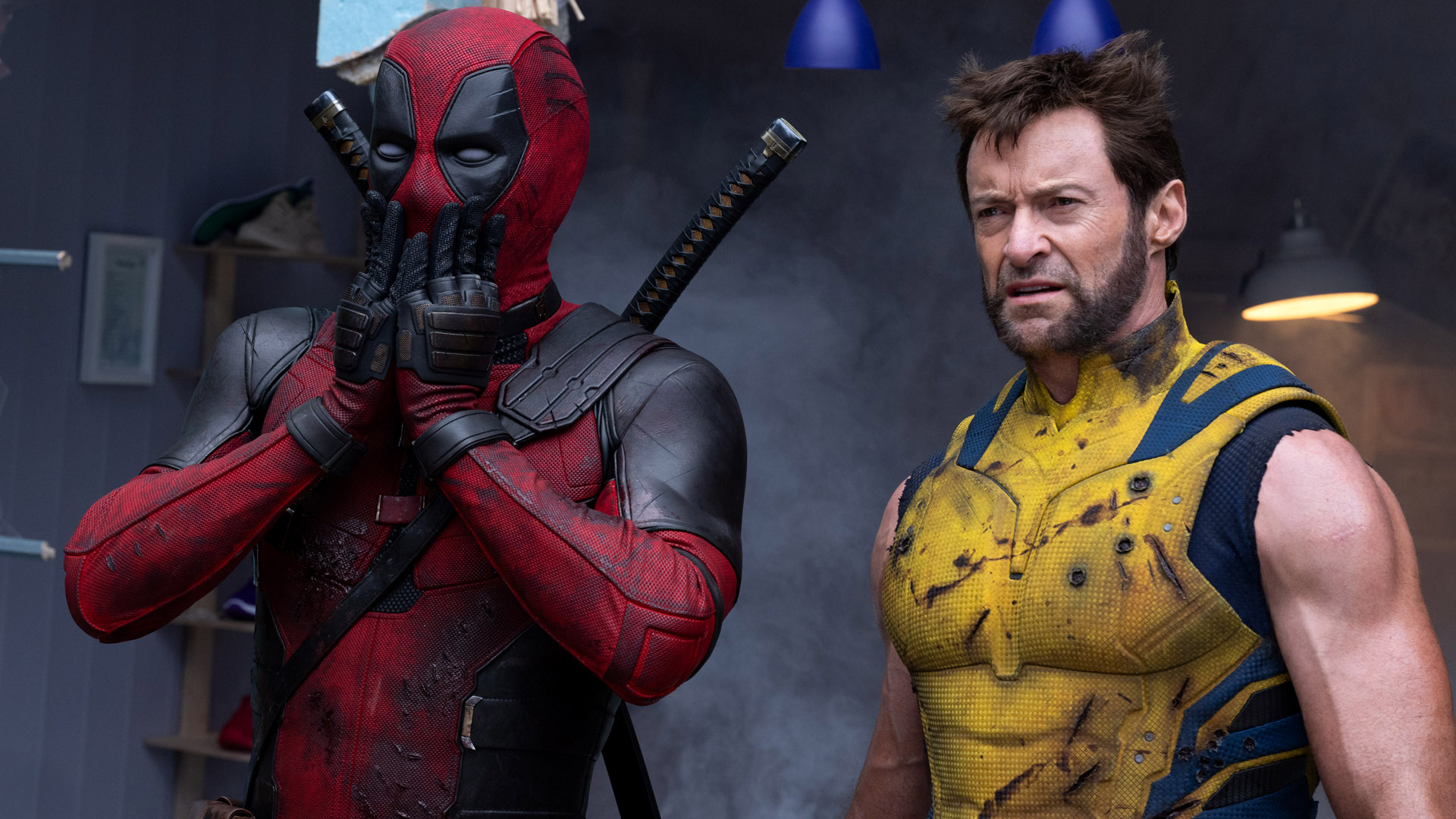
Sign up for breaking news, reviews, opinion, top tech deals, and more.
You are now subscribed
Your newsletter sign-up was successful
Welcome to TechRadar's X-Men movies in order guide. In this article, you'll find a definitive account of how to stream every mutant-starring film ever made. That includes the 13 Marvel movies that were produced by 20th Century Fox, as well as Deadpool and Wolverine, the first X-Men-centric flick that's set in the Marvel Cinematic Universe (MCU).
Working out how to stream every X-Men film isn't as straightforward as it seems, though. Indeed, due to the messy nature of when the superteam's live-action movies take place, there are a number of timelines to take into account. Luckily, our entertainment experts are on hand to guide you on your X-Men movies in order quest. So, without further ado, here's how to stream all of the X-Men films in order of chronology and their release dates.
Stream the X-men movies on Disney Plus
All 13 X-Men movies to date are available on Disney Plus, so you'll need a subscription to watch them.
Disney Plus Basic – its ad-supported tier – costs $7.99 (US) / £4.99 (UK) a month. Meanwhile, the Premium tier will set you back $10.99 / £10.99 per month or $109.99 / £109.99 annually. There's also an extra ad-free Standard tier in the UK, which is priced at £7.99 / £79.90.
In Australia, you can only purchase the Standard tier for AU$13.99 / $139.99, or the Premium tier (with 4K UHD and HDR video, and Dolby Atmos sound) for AU $17.99 / $179.99.
For more details about how much a subscription costs where you live, check out our Disney Plus price guide.
How to watch the X-Men movies in release date order
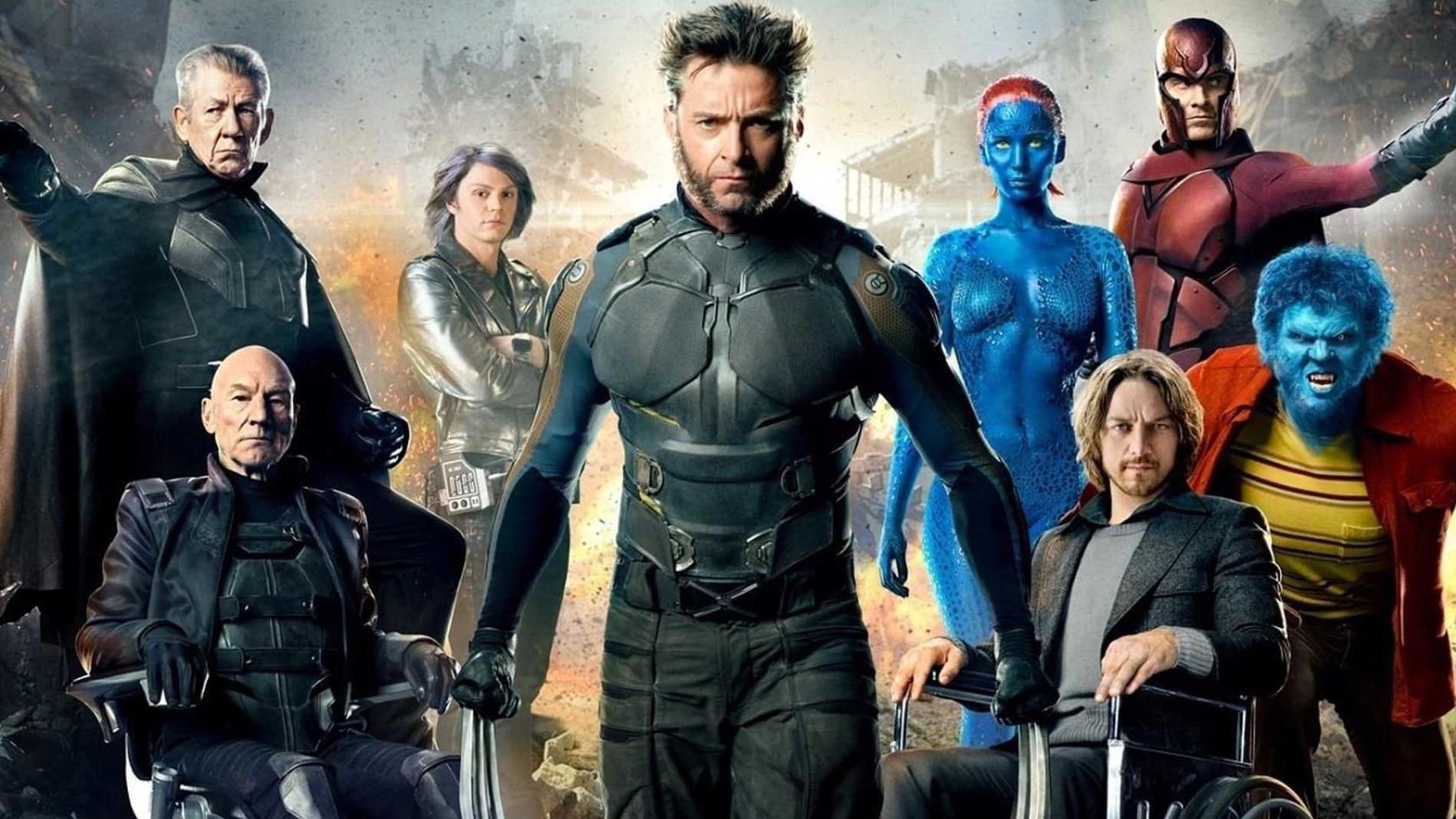
Best for: first-time viewers.
About to embark on your first-ever X-Men movie marathon? You'll want to start by watching the X-Men movies in release date order. It's a far simpler process to follow as you'll just be streaming every mutant movie in the order that they were released in theaters, starting with 2000's X-Men and ending with 2020's The New Mutants (NB: Deadpool 3 will become the latest addition to this section once it launches on July 26).
Watching the films this way also means you won't have to deal with the convoluted and messy X-Men movies in chronological order, either, which requires its own detailed section to explain what the heck is going on. So, if you're a newcomer to this film franchise, viewing the X-Men films in order of release date is the best place to start.
- X-Men (2000)
- X2: X-Men United / X-Men 2 (2003)
- X-Men: The Last Stand (2006)
- X-Men Origins: Wolverine (2009)
- X-Men: First Class (2011)
- The Wolverine (2013)
- X-Men: Days of Future Past (2014)
- Deadpool (2016)
- X-Men: Apocalypse (2016)
- Logan (2017)
- Deadpool 2 (2018)
- X-Men: Dark Phoenix (2019)
- The New Mutants (2020)
- Deadpool and Wolverine (2024)
How to watch the X-Men movies in chronological order
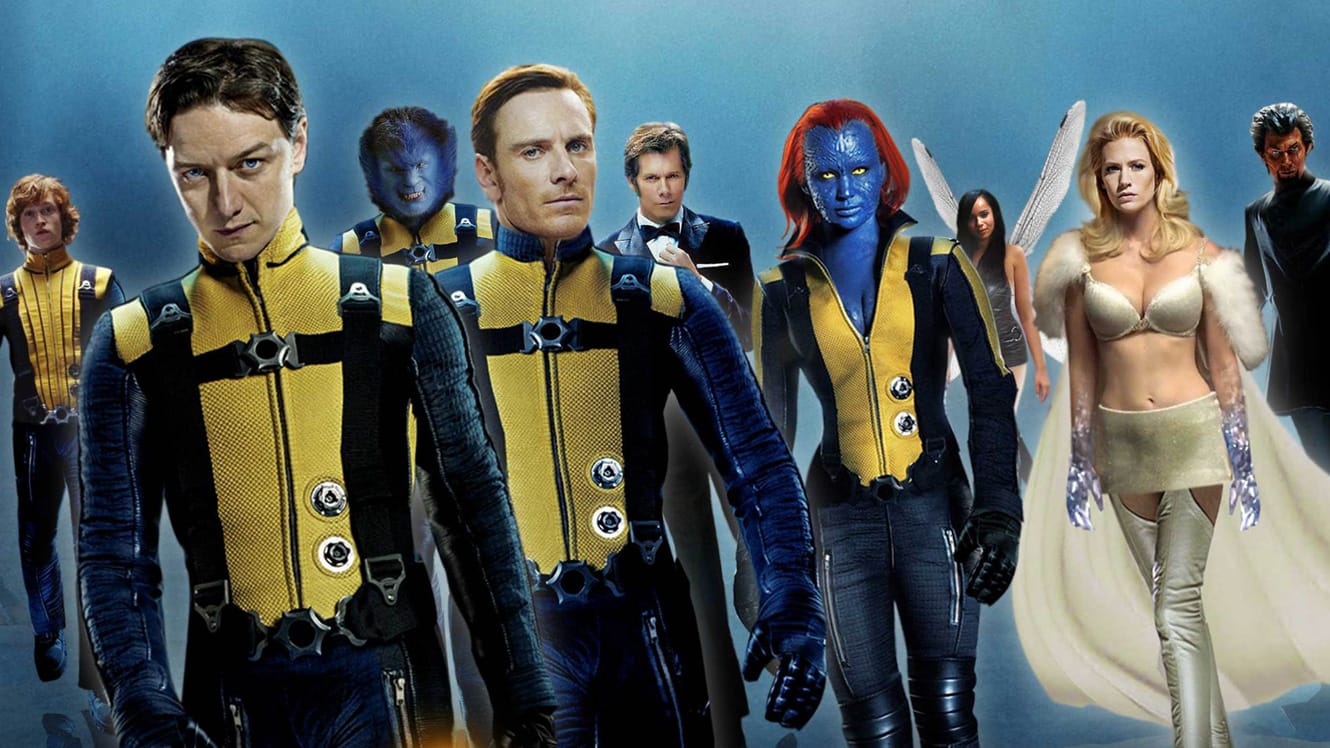
Best for: long-time fans who want a different viewing experience.
This is where things get incredibly complex because even the X-Men's supercomputer known as Cerebro would struggle to get its circuits around the intricacies of their live-action timeline.
Sign up for breaking news, reviews, opinion, top tech deals, and more.
On the surface, streaming the X-Men movies in order of their canonical chronology should be fairly straightforward. However, things are much more complicated – as evidenced by the below list of watching the X-Men films in order of chronology (NB: we haven't included Deadpool's first two movies in the list below as it'll only further complicate matters, but we've added Deadpool 3 due to its ties to Logan):
- X-Men: First Class (occurs in 1962)
- X-Men: Days of Future Past (primary plot set in 1973)
- X-Men Origins: Wolverine (takes place in 1979)
- X-Men: Apocalypse (set in 1983)
- X-Men: Dark Phoenix (set in 1992)
- X-Men (occurs in the year 2000)
- X2: X-Men United / X-Men 2 (set after X-Men)
- X-Men: The Last Stand (set after X-Men 2)
- The Wolverine (takes place after X-Men: The Last Stand)
- The New Mutants (set in the present day and likely before Logan)
- X-Men: Days Of Future Past (future sequences set in 2023 – though the post-apocalyptic timeline ceases to exist after the events of the movie)
- Deadpool and Wolverine (takes place in 2024, six years after Deadpool 2)
- Logan (set in 2029)
Confused? Allow us to explain. Ignoring the numerous flashbacks to the 19th century (X-Men Origins: Wolverine) and World War II (X-Men, X-Men: First Class, X-Men Origins: Wolverine, and The Wolverine), the mutants’ screen story actually begins in X-Men: First Class, which is set in 1962, and continues in X-Men: Days of Future Past., whose primary narrative occurs in 1973.
Next, while some key scenes in X-Men Origins: Wolverine take place that same year (i.e. 1973), the majority of this Wolverine-led flick – notably the scenes where James 'Logan' Howlett acquires his adamantium skeleton – is set in 1979. An augmented, rage-filled Wolverine next appears in X-Men: Apocalypse; a film set in 1983. The X-Men movie prequel saga concludes with X-Men: Dark Phoenix. It's set in 1992, FYI.
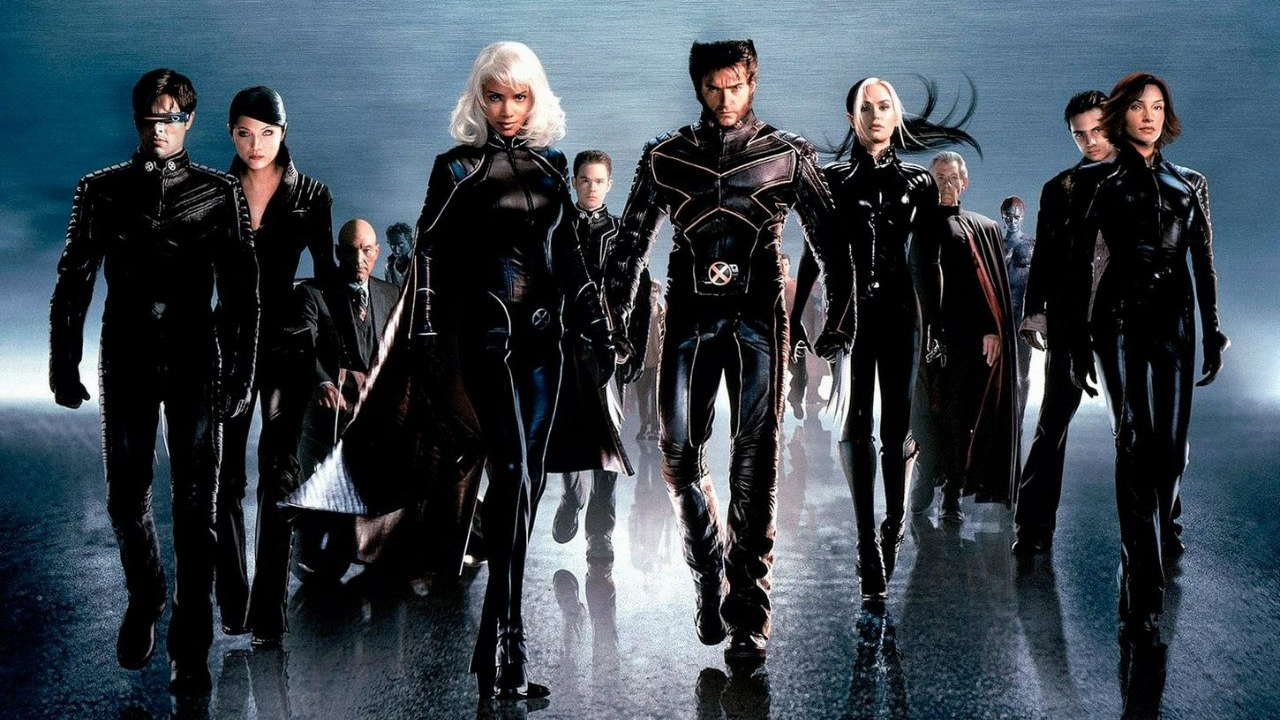
After that we finally get the original X-Men film, which was set in an undefined “near future” in the year 2000. X-Men 2 and X-Men: The Last Stand follow it in a relief-inducing linear fashion.
We also know that 2013's The Wolverine takes place after X-Men: The Last Stand, as Logan is still coming to terms with being forced to kill Jean Grey in the latter. The Wolverine’s end-credits sequence then takes place two years after the rest of the movie, as Professor Xavier and Magneto return to warn Logan about "dark forces building a weapon that could bring about the end of our kind", which leads us nicely onto the 2023-set parts of X-Men: Days of Future Past.
It's worth noting, however, that this timeline ceases to exist after Wolverine's time-travelling exploits in the movie, which end up saving the day – or so it appears. The grimdark Logan takes place in 2029, a time period when the X-Men are a thing of the past and very few mutants remain. So much for saving the day, eh?
To further complicate matter, Deadpool and Wolverine, which takes place in 2024, confirms that not only does Deadpool share a universe with Logan's version of Wolverine (a timeline designated Earth-10005), but also that it's a film that dips in and out of the ever-expanding and increasingly convoluted MCU.
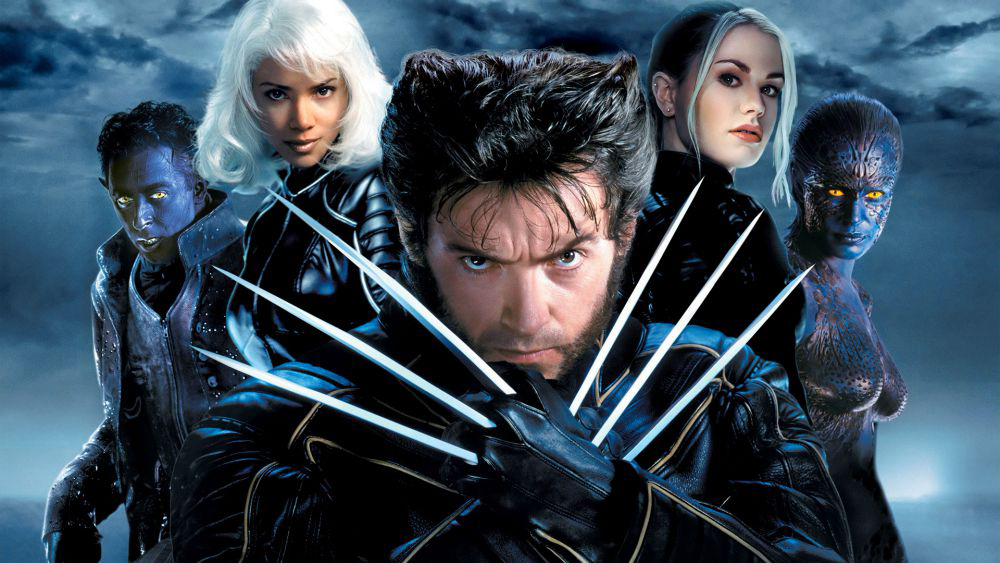
Unfortunately, things aren't that simple (if the above can be described as much). Indeed, while the above dates (mostly) fit together, there are numerous contradictions in this timeline.
In 2000's X-Men, Xavier reveals he met Magneto when they were 17 but, in First Class, we learn that their first meeting took place when both were adults. A hairless Xavier is seen walking and using his psychic abilities in the 1979 parts of X-Men Origins: Wolverine, yet he's paralyzed in 1962's X-Men: First Class, and doesn't lose his hair until X-Men: Apocalypse. (NB: he’s able to walk in the 1973 portion of Days of Future Past due to an experimental drug that suppresses his psychic abilities).
The end-credits scene from The Wolverine only adds to the confusion. The old Xavier was last seen being vaporized in X-Men: The Last Stand, yet he’s back in one piece here, while the older Magneto has regained the mutant abilities he lost in the same movie. Neither mystery is explained in a future flick. The scene also shows Wolverine wielding bone claws, having lost his adamantium adornments earlier in the movie – yet, by the time Days of Future Past rolls around, he’s back to adamantium. Again, nobody explains why.
And then there’s the fact that Jean Grey lives through the Dark Phoenix saga twice. But hey, we've gone down enough rabbit holes, so let's leave that discussion for another time.
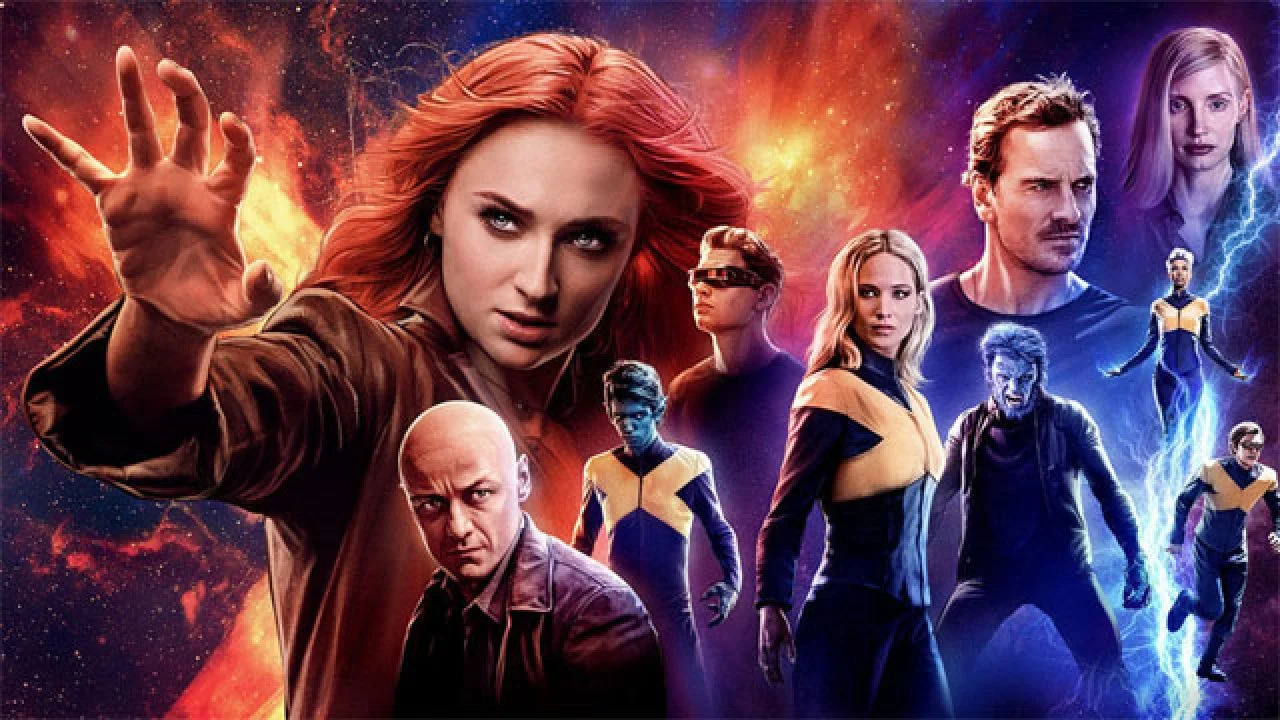
Admittedly, some of these contradictions can be explained away as continuity errors, while others start to make a bit more sense when you look at the X-Men universe as distinct timelines.
For example, ground zero for any X-Men movies in order guide is the 1973 segment of X-Men: Days of Future Past. With Wolverine traveling back in time and teaming up with the ’70s X-Men squad to prevent the creation of the Sentinels, they sidestep the future that led to mutant armageddon in the so-called 'Prime timeline'. This creates an alternative sequence of events (to the future portion of Days of Future Past) that leads into X-Men: Apocalypse and X-Men: Dark Phoenix.
We see evidence of the 'repaired' timeline by the end of Days of Future Past, too, with Logan/Wolverine returning to an unfamiliar future in which Cyclops and Jean Grey, played by original actors James Marsden and Famke Janssen, are still alive (they did in The Last Stand). We also see Kelsey Grammer’s version of Beast, who was also last seen in The Last Stand, and whose subsequent death Logan references in Days of Future Past. The new timelines, then, look something like this:
Prime X-Men timeline
- X-Men: First Class
- X-Men: Days of Future Past (1973 storyline before future Wolverine's intervention)
- X-Men Origins: Wolverine
- X-Men
- X2: X-Men United / X-Men 2
- X-Men: The Last Stand
- The Wolverine
'Repaired' timeline (post-Days of Future Past)
- X-Men: First Class
- X-Men: Days of Future Past (1973 storyline after future Wolverine's intervention)
- X-Men: Apocalypse
- X-Men: Dark Phoenix
- X-Men: Days of Future Past ('repaired' future sequences, featuring resurrected Cyclops and Jean Grey)
It’s unclear which branch of the X-Men timeline leads into Logan and Deadpool and Wolverine. A (non-canon) deleted scene mention Jean Grey’s death, suggesting it was originally planned as a continuation of the 'Prime timeline'. That said, Xavier also refers to Logan and Jean being married before he killed her, so – seeing as they were never officially a couple in the movies – previously, this suggested that Logan exists in its own distinct timeline. However, we now know that Deadpool and 20th Century Fox's complex X-Men universe take place on Earth-10005, so we can throw away that particular Logan theory.
Lastly, The New Mutants, plus TV shows Legion and The Gifted should be regarded as their own distinct entities, completely separate from the other X-Men timelines.
How to watch the X-Men movies in order: distinct film series
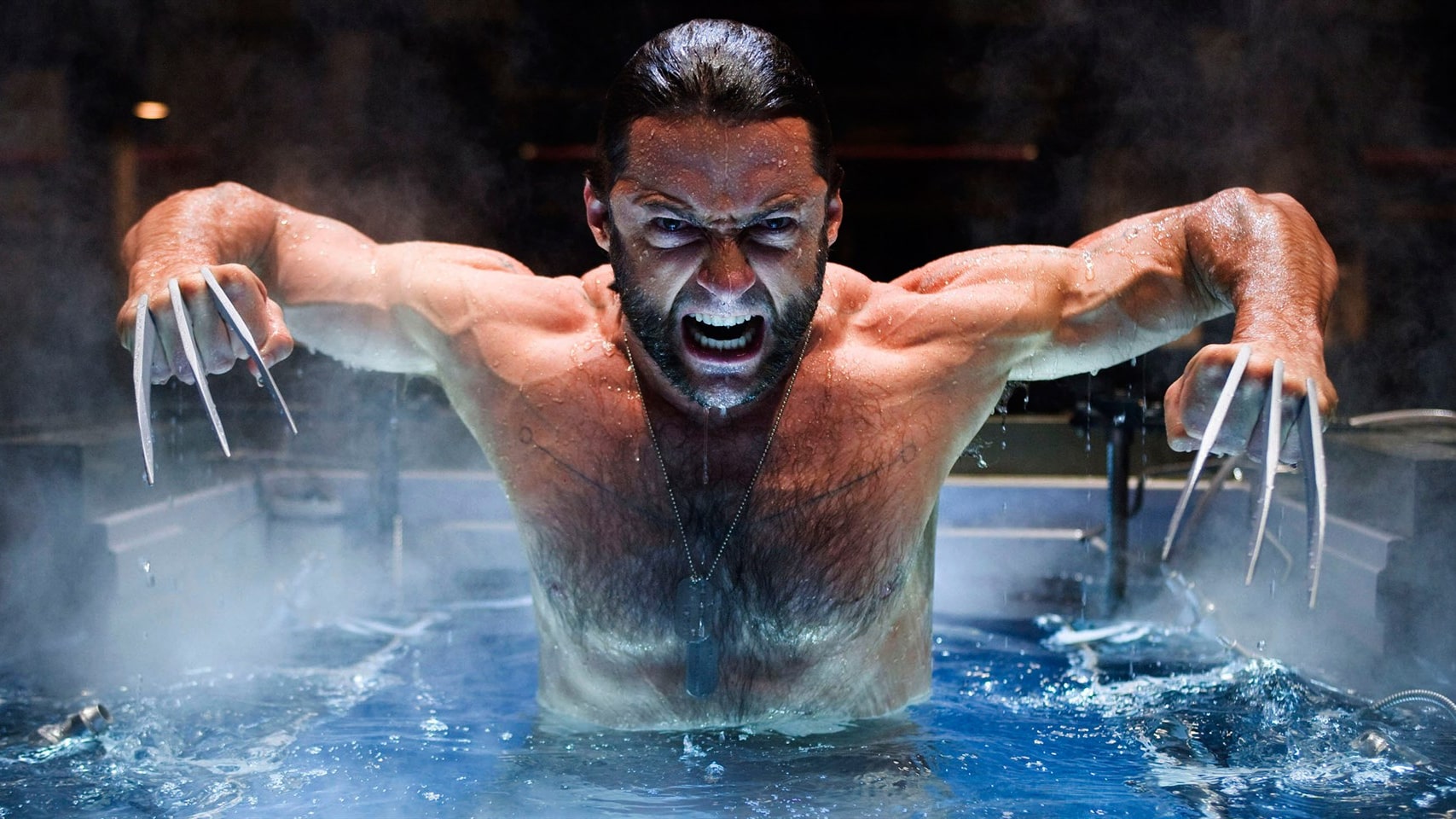
As we've alluded to, the X-Men movies don’t really exist as one continuous saga. Instead, there were several mini-franchises within 20th Century Fox's overall franchise until the studio was bought by Disney in 2019. For that reason, it's easier to think of them in granular terms, rather than getting hung up on how they fit together as one big entity.
Here, then, is how to stream each batch of X-Men movies in order, including how to watch the Deadpool films in order:
Original X-Men trilogy
- X-Men
- X-Men 2/X2: X-Men United
- X-Men: The Last Stand
Prequel X-Men quadrilogy
- X-Men: First Class
- X-Men: Days of Future Past
- X-Men: Apocalypse
- X-Men: Dark Phoenix
Wolverine film trilogy
- X-Men Origins: Wolverine
- The Wolverine
- Logan
Deadpool movie trilogy
- Deadpool
- Deadpool 2
- Deadpool and Wolverine
Other X-Men flicks
- The New Mutants
Where to watch the X-Men movies in order
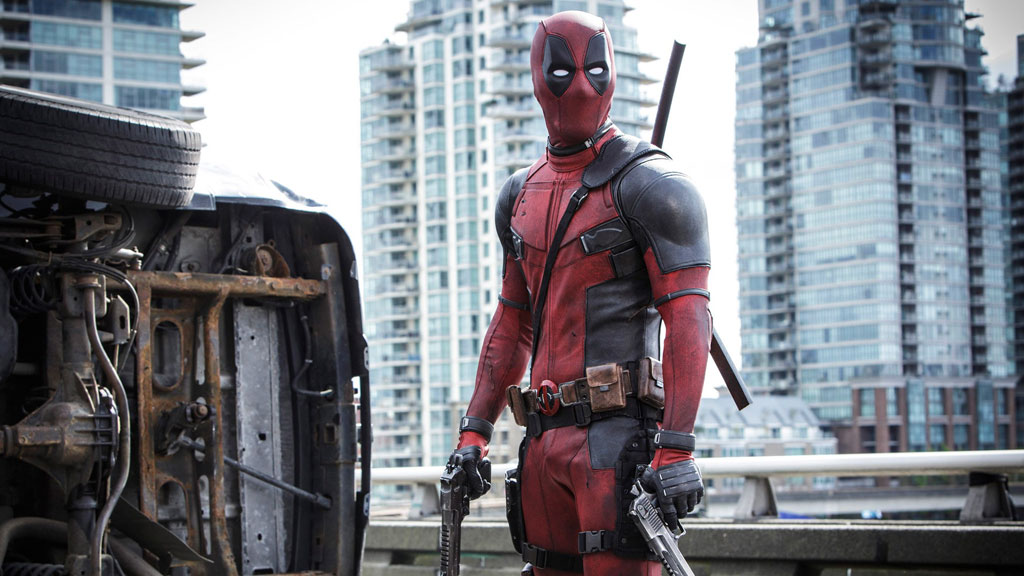
Good news, everyone! The first 13 X-Men movies are available on Disney Plus in the US, UK, and Australia. Various films are also available to watch on other streamers, including Max, Fubo, and Starz. But, with each one viewable on Disney's primary platform, why would you look anywhere else?
We don't know when Deadpool 3 will join its brethren on one of the best streaming services, but you should bookmark our Deadpool and Wolverine on Disney Plus guide to find out more about its official streaming launch date when it's announce.
The X-Men in the Marvel Cinematic Universe
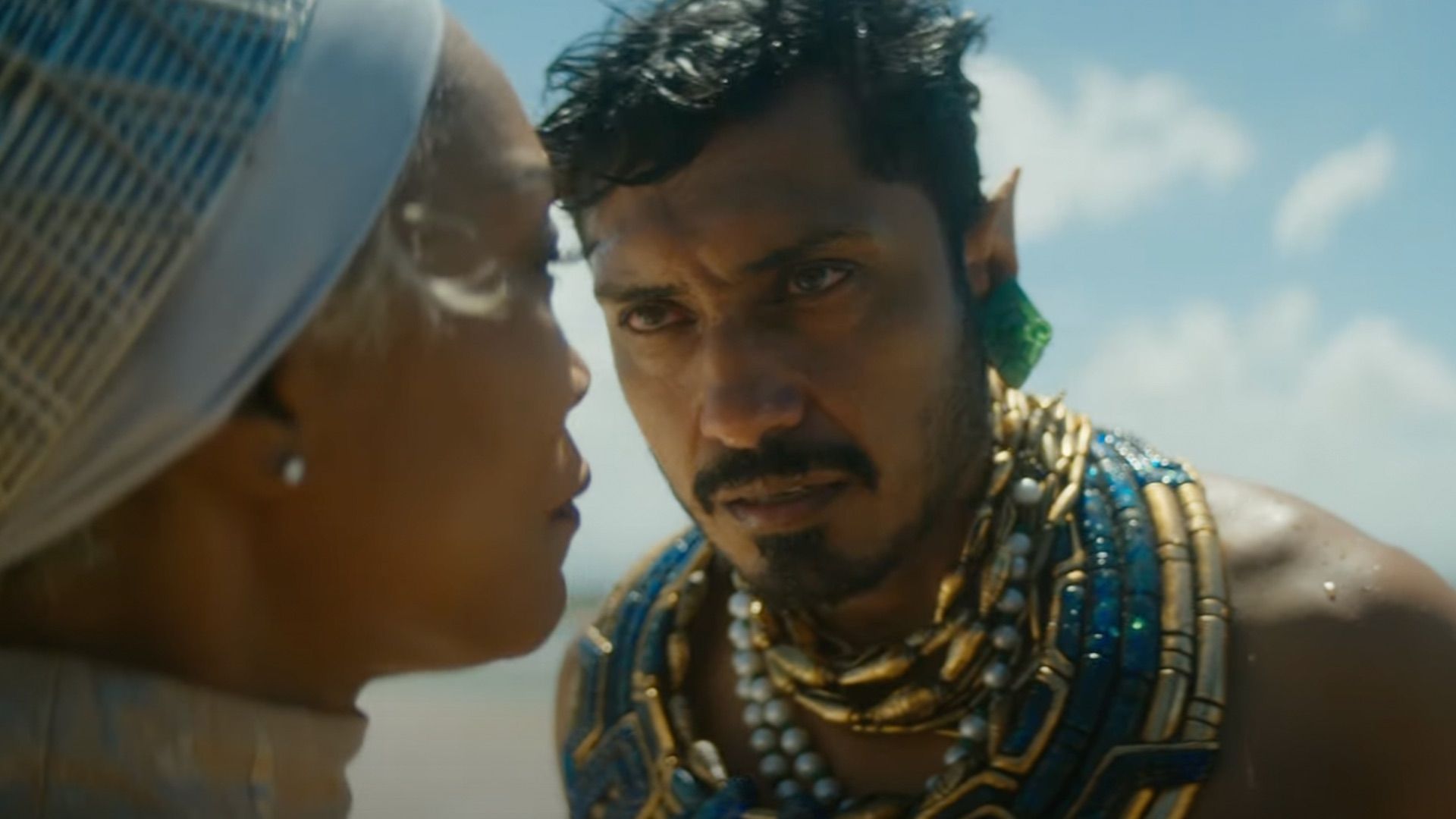
Although 20th Century Fox's X-Men franchise came to an end with The New Mutants, the group have slowly made the leap to the MCU in recent years. A new X-Men film hasn't been announced by the comic titan, but it's only a matter of time. Not only that, but Marvel President Kevin Feige has teased that, post-Deadpool and Wolverine, we'll be entering the MCU's Mutant Era (per The Playlist). Exciting times lie ahead, then.
That all said, some mutants made their MCU debuts prior to Deadpool 3. Indeed, a version of Patrick Stewart's Professor X appeared briefly in a parallel universe in May 2022's Doctor Strange in the Multiverse of Madness, while 'the M-word' –mutant – was mentioned for the first time in Ms. Marvel (alongside a tease of the theme from the classic ’90s X-Men cartoon) one month later.
Before 2022 ended, another mutant in Namor, who debuted in Black Panther: Wakanda Forever, was also unveiled. The mid-credits sequence from November 2023's The Marvels saw Monica Rambeau landing in a parallel universe where the X-Men – including the returning Kelsey Grammer (Frasier) as Beast – are very much alive and kicking, too. Oh, and the launch of season 1 of X-Men 97 in March also heralded the superteam's return – albeit in animated form and in a completely separate universe to the MCU.
As for Deadpool and Wolverine, it's more of a celebration of Fox's defunct X-Men film franchise than an instigator for the group's MCU arrival. Read our Deadpool and Wolverine ending explained article to find out more about what impact, if any, it has on the MCU's future.
Every X-Men movie ranked, from worst to best
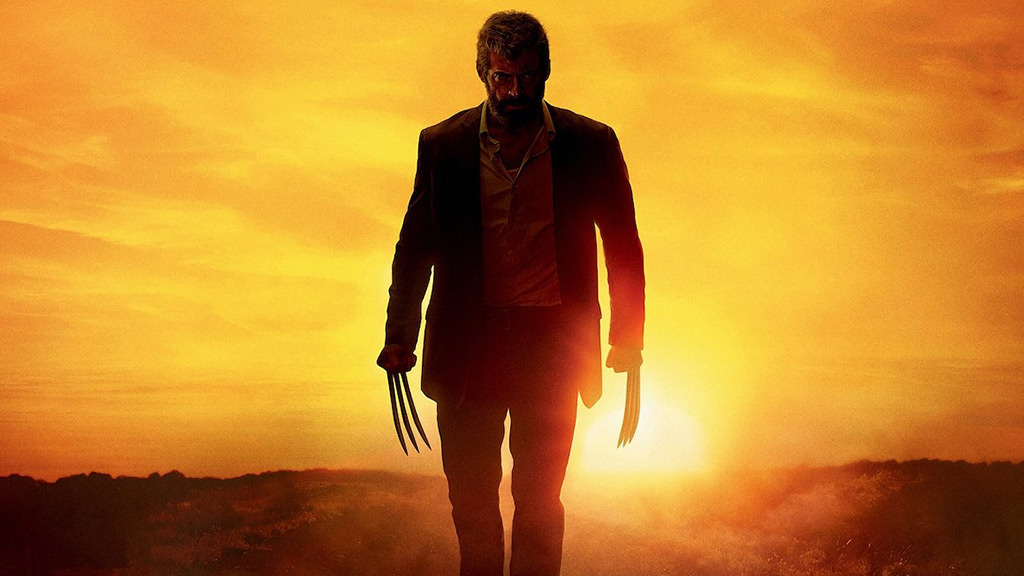
Much like their MCU counterparts – learn more in our Marvel movies in order guide – the X-Men movies vary in quality. Unsurprisingly, that means fans and critics alike have had plenty to say about them over the past 24 years. Below, then, we've ranked the X-Men movies in order of their critical ratings on Rotten Tomatoes. Read on to see if you agree with how they're rated:
- Logan – 93%
- X-Men: Days of Future Part – 90%
- X-Men: First Class – 86%
- X2: X-Men United – 85%
- Deadpool – 85%
- Deadpool 2 – 84%
- X-Men – 82%
- Deadpool and Wolverine – 80%
- The Wolverine – 71%
- X-Men: The Last Stand – 57%
- X-Men: Apocalypse – 47%
- X-Men Origins: Wolverine – 38%
- The New Mutants – 36%
- X-Men: Dark Phoenix – 22%
For more Marvel-based coverage, read our guides on Marvel Phase 5, The Fantastic Four, Agatha All Along, and how to watch the Spider-Man movies in order.
Richard is a freelance journalist specialising in movies and TV, primarily of the sci-fi and fantasy variety. An early encounter with a certain galaxy far, far away started a lifelong love affair with outer space, and these days Richard's happiest geeking out about Star Wars, Star Trek, Marvel and other long-running pop culture franchises. In a previous life he was editor of legendary sci-fi and fantasy magazine SFX, where he got to interview many of the biggest names in the business – though he'll always have a soft spot for Jeff Goldblum who (somewhat bizarrely) thought Richard's name was Winter.
- Tom PowerSenior Entertainment Reporter
